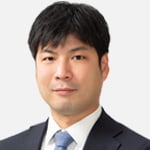Recently, there have been moves to expand restrictions on companies transferring advanced technology abroad. In connection with this trend, the Ministry of Economy, Trade and Industry (“METI”) is expected to promulgate regulations requiring companies to report technology transfers to it in advance in areas where Japan has an advantage that other countries are interested in matching.
The purpose of this regulation is to prevent the military utilization or leakage of advanced Japanese technology.
The Japanese government currently compiles a list of goods and technologies with a high potential for military utilization and strictly controls them (“List Regulations”). In addition to this, the new regulations impose a prior reporting obligation on transfers of some advanced technologies in which Japanese companies have significant market share that are outside the scope of the List Regulations.
The scope of the new regulations is expected to be determined in consultation with companies and industry associations. Envisaged subjects include advanced equipment and materials intended for civilian use that can be converted to military use. The restrictions will likely be limited to technology transfers that may result in factory relocation to or local production in another country. Provision of program information on products, technical guidance and transmission of data by email, etc. may also be subject to the new regulations, depending on the circumstances. Penalties will be established for contractors who make false reports or deliberately fail to report. Sales activities — such as licensing — are not expected to be targeted. METI will only grant permission for a technology transfer where it acknowledges that the companies seeking to transfer or receive the technologies at issue control the technology properly. METI policy does not require prior reporting for transfers to “Group A (formerly White countries)”[1] whose strict export controls Japan has previously approved.
[1] Argentina, Australia, Austria, Belgium, Bulgaria, Canada, the Czech Republic, Denmark, Finland, France, Germany, Greece, Hungary, Ireland, Italy, the Republic of Korea, Luxembourg, the Netherlands, New Zealand, Norway, Poland, Portugal, Spain, Sweden, Switzerland, the United Kingdom and the United States.






